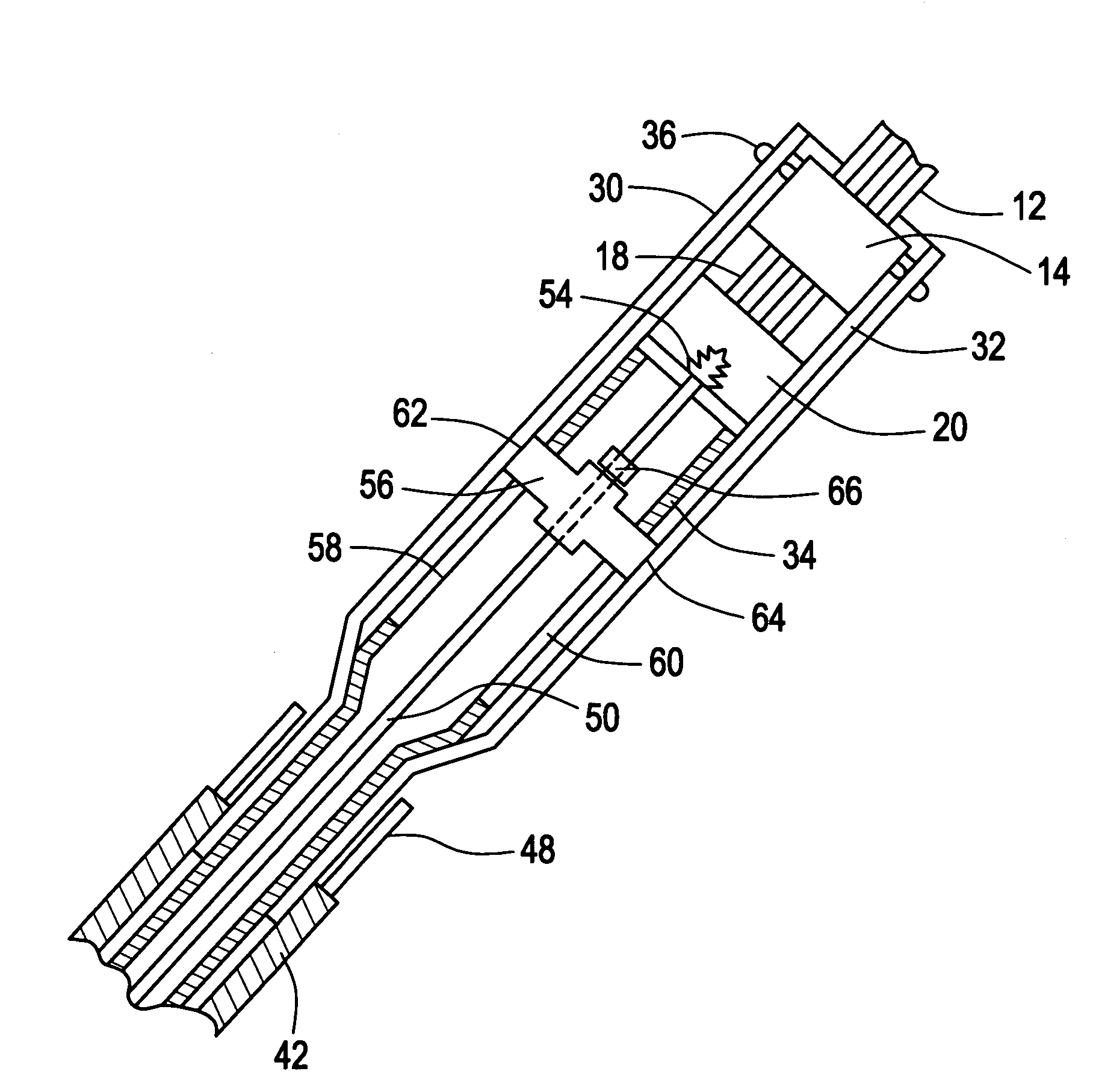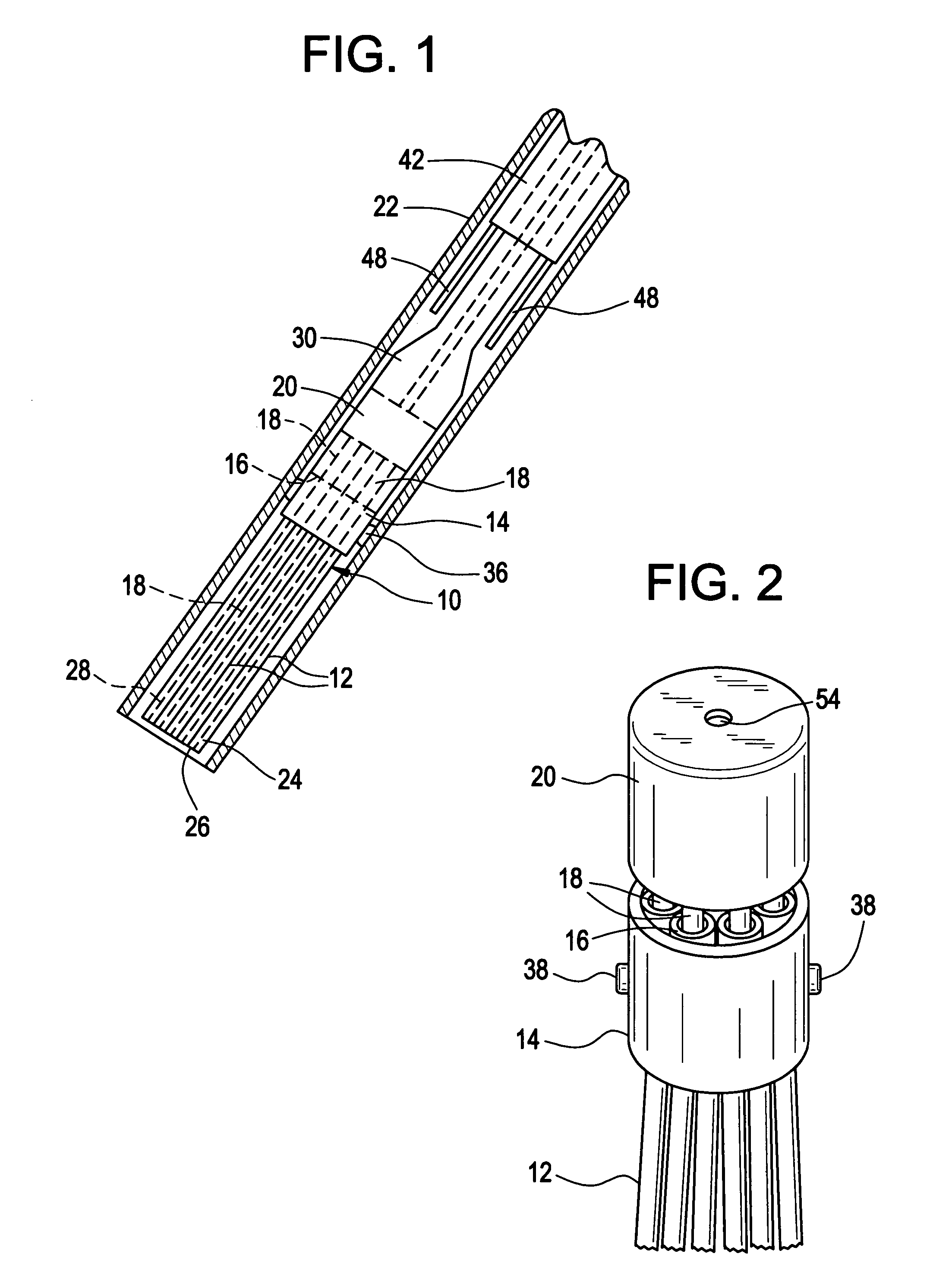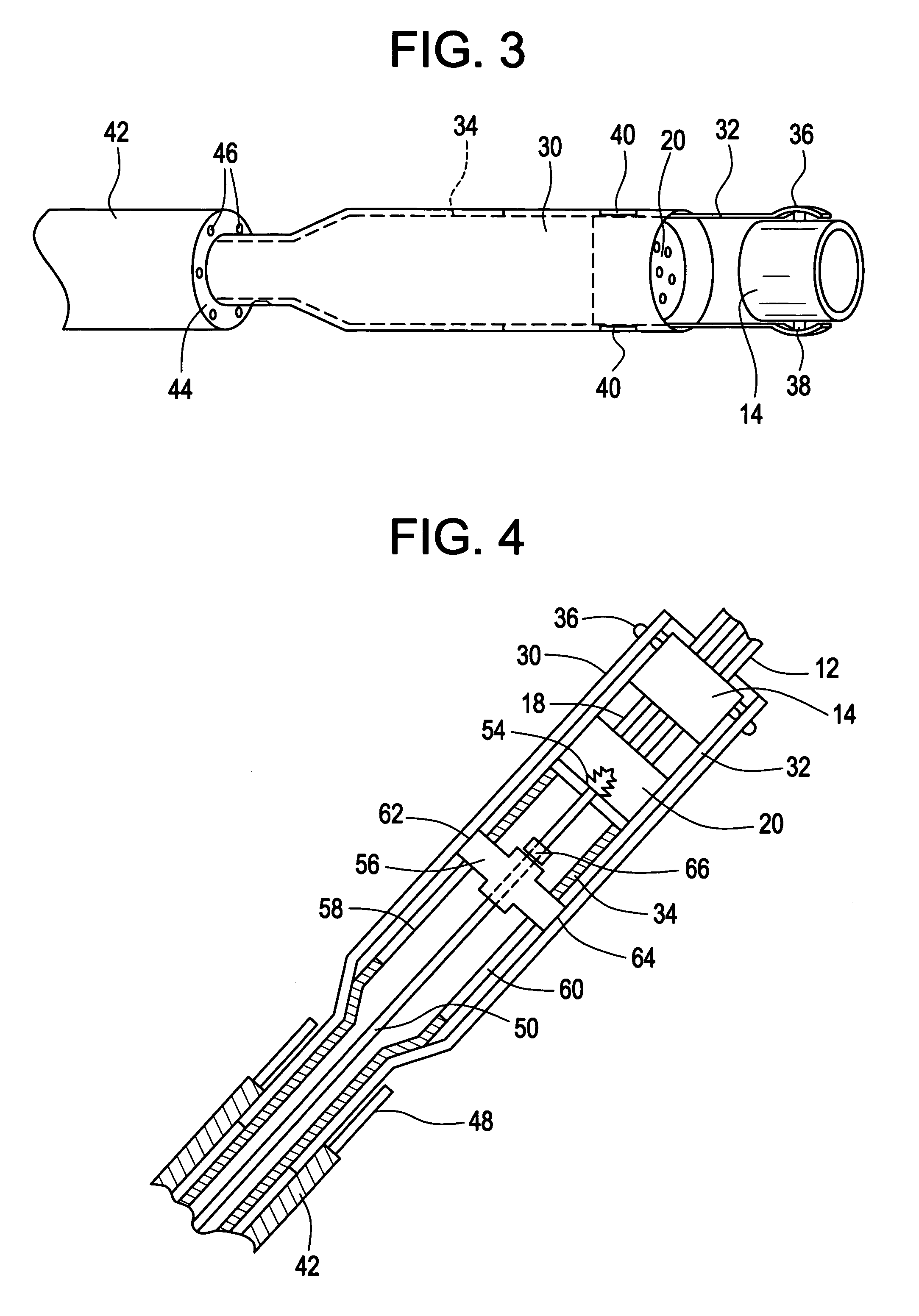Medical device anchor and delivery system
a technology for medical devices and anchors, applied in the field of medical technology, can solve the problems of difficult migration and change of position of medical implants, difficult to maintain an implanted device in a desired position for an extended period of time, and difficult to effectively position such devices, so as to facilitate the removal and reinsertion of anchors.
- Summary
- Abstract
- Description
- Claims
- Application Information
AI Technical Summary
Benefits of technology
Problems solved by technology
Method used
Image
Examples
Embodiment Construction
[0028]Referring to FIGS. 1–2, a blood clot filter which includes anchors in accordance with the present invention is illustrated generally at 10. This filter, shown for illustration as a vena cava filter, is formed with a plurality of elongate legs 12 which are secured to, and extend outwardly from a leg retention sleeve 14. The elongate legs are formed by small, open ended tubes each having a first open end 16 which opens at the leg retention sleeve. A plurality of long shafts 18 are attached at a distal end to an anchor support hub 20 which is spaced from the leg retention sleeve when the vena cava filter is collapsed within a catheter or delivery tube 22. Each shaft 18 extends from the anchor support hub 20 into the first open end 16 of a tubular leg 12 and through the leg to a distal end 24 at a point adjacent to a second open end 26 of the tubular leg. An anchor 28 is formed at the distal end of each shaft 18 in a manner to be described.
[0029]The elongate legs 12 and the long s...
PUM
 Login to View More
Login to View More Abstract
Description
Claims
Application Information
 Login to View More
Login to View More - R&D
- Intellectual Property
- Life Sciences
- Materials
- Tech Scout
- Unparalleled Data Quality
- Higher Quality Content
- 60% Fewer Hallucinations
Browse by: Latest US Patents, China's latest patents, Technical Efficacy Thesaurus, Application Domain, Technology Topic, Popular Technical Reports.
© 2025 PatSnap. All rights reserved.Legal|Privacy policy|Modern Slavery Act Transparency Statement|Sitemap|About US| Contact US: help@patsnap.com



